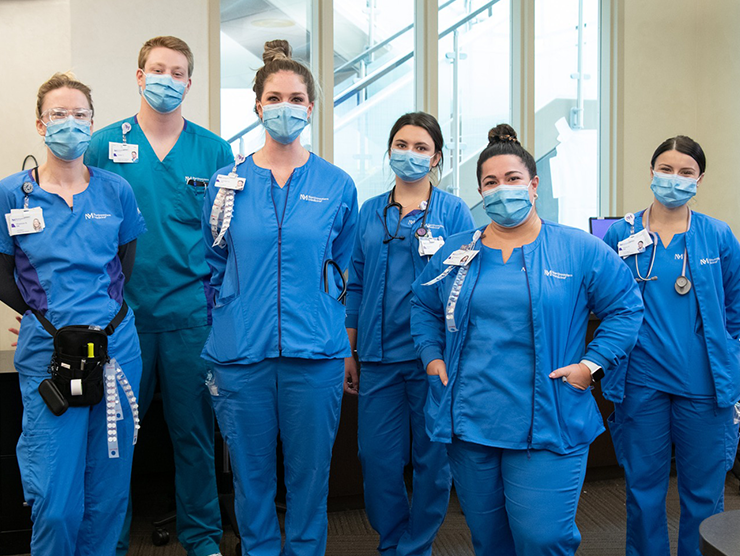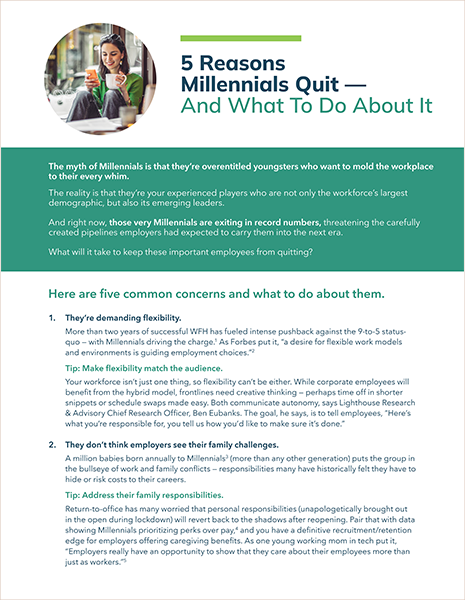Sanofi’s 13,000+ U.S. employees are unified by the desire to innovate for the small breakthroughs in health, as well as the epic ones. This commitment extends to continually enhancing the employee experience as well.
Ayelet Mosaffi Hutson, Director of North America Total Wellbeing and Global Projects, shares some of the benefits and programs that are helping to further Sanofi’s inclusive culture where all employees feel supported.
Supporting mental wellbeing
As a global healthcare company, Sanofi develops and provides potentially life-changing treatment options and life-saving vaccine protection to millions of people globally. In many cases, their teams are working to chase the miracles of science. To accomplish this, Sanofi needs every employee to be at their very best. While recruiting and retaining top talent are always top of mind, so is caring for employees.
As the company’s workforce has evolved, so has the biopharma’s approach to supporting employees. Several initiatives started with shifting mindsets. Sanofi recently updated its paid sick time policy to cover mental wellbeing needs of employees and their family members. Sanofi wants to ensure that all employees take the time to prioritize their wellbeing.
When employees or their families need help, Sanofi encourages them to find it. To make it easier, the People & Culture team built and launched an online mental health finder which identifies the best support options for employees based on what they are experiencing. To help increase awareness of the benefits and resources available, and to encourage whole family wellbeing, Sanofi also provides access to the portal for spouses and/or domestic partners.
“Starting in 2019, we launched a campaign called “It’s OK to Not Be OK.” The goal of the campaign was to reduce stigma, engage leaders in the conversation through companywide speaker events focused on mental health, and provide awareness of the broad spectrum of benefits – anywhere from on demand coaching, onsite counselors, employee assistance programs and more,” stresses Mosaffi Hutson.
Unafraid to tackle evolving areas of need, Sanofi has also recently rolled out a new program to support women nearing and in menopause through coaching, digital resources, access to providers, and more.
Supporting working caregivers
As with most of its benefits, Sanofi’s support of parents and working caregivers goes beyond basic programming. The company provides a paid gender-neutral parental leave program where employees are eligible for 14 paid weeks. This includes birth parents, adoptive parents and surrogate parents. In addition, they provide four weeks of paid caregiver leave for employees that need to care for a parent, child, or spouse with a serious health condition.
Sanofi also provides a back-up care program for when regular care options are unavailable. In 2022, the Bright Horizons back-up care program saved more than 2200 workdays for Sanofi, helping to ensure employees were able to come to work and help chase the miracles of science.
“We recognize caregiving responsibilities are not limited to the youngest of children. Our back-up care program includes care and virtual tutoring for older children, as well as support and services for aging or ill spouses, parents and other adults. We’ve seen a growing need for senior care, with it accounting for roughly six percent of our back-up care use in 2022,” says Mosaffi Hutson. “As baby boomers continue to age, and millennials enter the sandwich generation, this need will only increase.”
This holistic support of all caregivers should prove beneficial over the coming years as Sanofi looks to attract and retain the next generation of employees. The recent Bright Horizons survey of Gen Z and Millennials found both generations are already stressed about their parents’ physical (68%), mental (62%), and financial (53%) wellbeing — even those not yet in the “sandwich” generation or with direct elder care obligations. Back-up care programs can help ease some of this stress.
Supporting educational needs of employees and their families
Sanofi also supports employees wishing to continue to advance their education and careers by providing tuition reimbursement. The program is managed by EdAssist and two-thirds of the employees taking advantage of the education assistance are pursuing advanced degrees.
Sanofi has a retention rate of 92% among employees utilizing the tuition reimbursement program over the past ten years. This level of retention helps minimize turnover costs for the organization. Within the life sciences industry, it takes an average of 105 days to fill a non-executive role at a cost of roughly $500 per day, potentially adding up to more than $52,000 to fill just one role. For many companies, open roles add stress and additional expenses.
Additionally, Sanofi supports their employees’ children with educational needs by providing virtual tutoring, scholarship programming where employees’ dependents can apply and have the opportunity to earn up to $10,000 in scholarships — and a College Coach program which aims to reduce the potential stress and countless hours parents can spend on college-related tasks leaving them distracted, anxious, and financially strained.
These are just a few examples of how the company supports employees and their families.
Five generations comprise today’s workforce, and the world employees live and work in is more complex than ever. Looking at the many needs of employees at every stage of life, and implementing forward-thinking benefits programs, ultimately enables Sanofi to continue maintaining and enhancing work-life harmony for the many colleagues who support their business, communities, and most importantly, the patients they serve.




